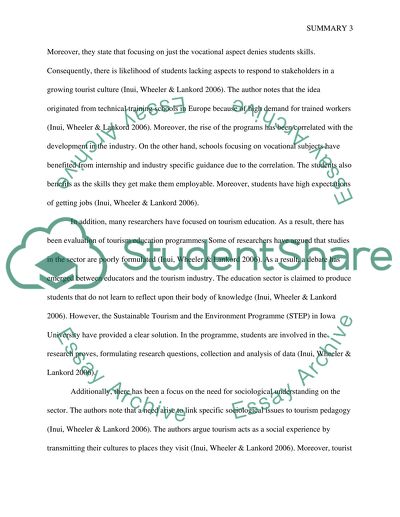Summary Essay Example | Topics and Well Written Essays - 750 words - 9. Retrieved from https://studentshare.org/tourism/1497269-summary
Summary Essay Example | Topics and Well Written Essays - 750 Words - 9. https://studentshare.org/tourism/1497269-summary.


